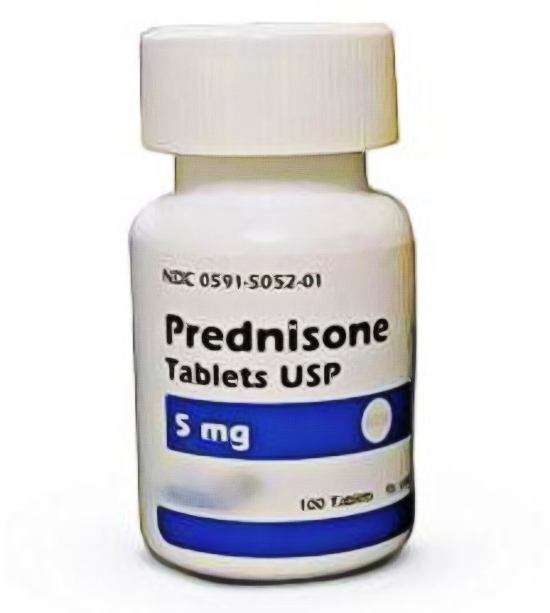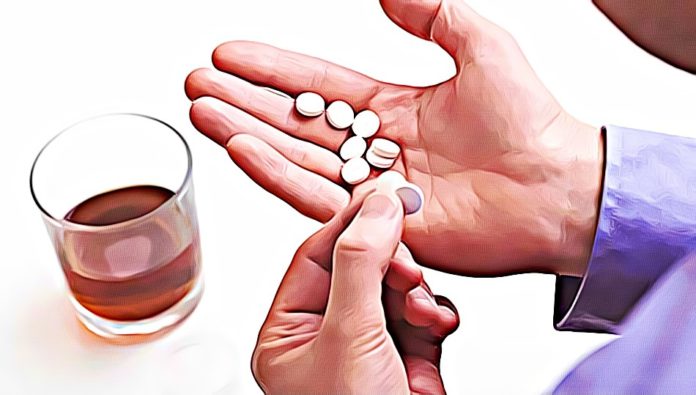Have you ever had an allergic reaction that was so severe that it drastically affected your quality of life? For situations like this, a drug called prednisone can be a game-changer to the one suffering from severe allergies. However, despite its almost miraculous abilities, it is also known for a host of side effects. Let’s explore what prednisone is and how it can affect your body.
What Is Prednisone?
Prednisone is an oral, synthetic corticosteroid used for suppressing the immune system and inflammation. Doctors prescribe this drug to treat several different conditions. One such use is to help balance hormones in people whose adrenal glands do not produce enough corticosteroids. It is also a powerful anti-inflammatory drug that can help to treat diseases that cause inflammation, such as lupus, multiple sclerosis, and arthritis.
As a prescription drug, prednisone can be given in different ways, including pill, injection, and inhalation.
Prednisone belongs to a group of drugs called corticosteroids that are mainly used to treat many conditions, including rashes, inflammatory, bowel disease, and asthma. However, these types of medicines also come with a slew of side effects, some more severe than others. Prednisone, in particular, is known to have severe side effects, especially if mixed with other substances, such as alcohol.
How Does Prednisone Work?
Like most corticosteroids, prednisone mimics the effects of cortisol, which is the naturally-occurring corticosteroid produced by the adrenal glands. Cortisol is basically the primary stress hormone in our body, and it works very much like a built-in alarm system. It works with certain parts of your brain to control your mood, motivation, and fear and also keeps inflammation down, among other things.
So, when a person is unable to produce enough cortisol in their body to help with inflammation, that’s when prednisone comes into play to support the lack of cortisol in the body. When Prednisone is taken, it is initially ineffective until the enzymes in our liver convert it to prednisolone. Therefore, prednisone may not work effectively in people with liver disease as they are unable to convert prednisone into an active substance.
Known Side Effects
The side effects of prednisone and other drugs that belong in the same group of corticosteroids range from mild annoyances to more serious conditions like irreversible organ damage.
Some of the common side effects of prednisone are:
- Weight gain
- High blood pressure
- Headache
- Loss of potassium
- Vomiting
- Muscle weakness
- Nausea
- Sleeplessness
- Acne
- Restlessness

These are just a few of the more mild side effects of the drug. When prednisone is taken in higher doses and on more prolonged treatment, it can result in more severe side effects, such as:
- Elevated pressure in the eyes (glaucoma)
- Heart attack
- Thinning bones and fractures
- Clouding of the lens in one or both eyes (cataracts)
- Pulmonary edema
- High blood sugar, which can trigger or worsen diabetes
- Increased risk of infections involving viral and fungal microorganisms
- Retardation of growth in children
- Thin skin, bruising, and slower wound healing
- Congestive heart failure
- Suppressed adrenal gland hormone production resulting severe fatigue and loss of appetite
- Pancreatitis
- Hyperglycemia
- Hypothyroidism
Looking at that long list of side effects, prednisone and its fellow corticosteroids should be taken with extreme caution. Patients who are given a prescription of this drug should follow their doctor’s recommendations and dosage instructions to the letter. Like other prescription drugs, it is also prone to misuse, abuse, or even drug addiction.
Psychological Effects
There are perhaps more sinister side effects of it that aren’t commonly reported and discussed by doctors with their patients. Amidst all the physical side effects of the drug, there are also psychological effects that are severe but quite rare.
A 2013 study on corticosteroids found that 1% of patients who take a dose higher than 40mg will have an adverse psychiatric reaction. The higher the amount taken will also increase the risk.
There was also a case study describing a 45-year-old woman who suddenly had severe mood swings while being treated with prednisone. Despite having no history of mental illness, she was displaying symptoms similar to severe bipolar disorder. The study finally concluded that the prednisone treatment triggered the woman’s psychiatric condition.
Prednisone and Alcohol
Mixing prescription drugs with alcohol and other substances is never a good thing. The same goes for medicine like it, which already has a heap of side effects. Like many drugs, prednisone has a tendency to interact with various substances and, most of the time, will lead to adverse effects on the human body.
Suppose you’re living with a functioning alcoholic who then gets prescribed to take prednisone as treatment for a condition. Because of their constant consumption of alcohol, combined with the regular intake of prednisone, the results could be devastating to the person’s body. But before we can talk about the effects of alcohol and prednisone intake, we need to establish the relationship between the two substances first.
Because of it’s widespread use in medicine, there’s no question about the short and long-term effects of the drug. Combined with the consequences of alcohol misuse, there are health risks associated with mixing prednisone and alcohol.
Americans are known to have very high consumption rates of alcohol that could easily interfere and interact with whatever prescription drugs they’re taking. With more than 86% of adults reporting alcohol consumption in America, there’s a very high possibility of ingesting both prednisone and alcohol.
The Dangers of Mixing Alcohol and Prednisone
One of the defining traits of corticosteroids is their ability to suppress the immune system. On the other hand, alcohol also can compromise the body’s immune system and increases the risk of adverse health outcomes. With both substances having the ability to suppress immune responses, combining the two could potentially cripple your immune system, leaving you vulnerable to infections.
This combination could also lead to undesirable effects for people with a high risk of developing type 2 diabetes. Prednisone may also increase your blood sugar levels way beyond the threshold for diabetes. As such, alcohol also has a tendency to do the same, which further increases your risk of developing type 2 diabetes. It doesn’t stop there.
The dreadful combination of alcohol and prednisone can also irritate the digestive tract and cause peptic ulcers. If you’re already prone to indigestion or an upset stomach, this is doubly concerning.
Bone Health
Lastly, one of the known side effects of prednisone is causing bones to become thin and brittle, possibly contributing to the early onset of osteoporosis. Considering fractures are a significant risk with long-term or high-dose corticosteroid use, taking prednisone will only increase the risk of osteoporosis and vertebral fractures.
On the other hand, alcohol use also has some effect on bone density, though in inconsistent ways. In fact, light to moderate alcohol consumption is actually beneficial to the body and could even slow down age-related bone loss. But heavy alcohol consumption makes you a fall risk, and if you’re already taking prednisone, then a simple bump on your brittle bones will end up badly.
Conclusion
Prednisone and alcohol can both affect corticosteroid levels. They’re essentially two very different substances that could amplify the effects of one another. While having a drink or two is generally harmless, drinking heavily and frequently while taking a prednisone prescription could compound the drug’s side effects. All in all, it’s best to stay away from any alcoholic drinks while you are still on medication.
Sources:
















